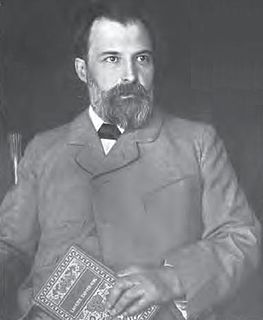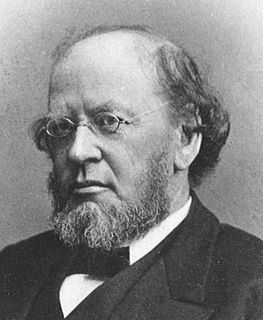A Quote by John Dewey
That which distinguishes the Soviet system both from other national systems and from the progressive schools of other countries is the conscious control of every educational procedure by reference to a single and comprehensive social purpose.
Related Quotes
A … difference between most system-building in the social sciences and systems of thought and classification of the natural sciences is to be seen in their evolution. In the natural sciences both theories and descriptive systems grow by adaptation to the increasing knowledge and experience of the scientists. In the social sciences, systems often issue fully formed from the mind of one man. Then they may be much discussed if they attract attention, but progressive adaptive modification as a result of the concerted efforts of great numbers of men is rare.
The German health care system is unique in its attempt to combine competition among sickness funds on the one hand and a universal coverage plan on the other hand. Most health care systems are either one or the other, so you either have private insurance and competition but not everyone is covered for everything, or you have a single-payer system. So the ideal types are like the American system on the one hand or the Scandinavian or U.K. systems on the other end.
Germany tries to combine the advantages.
The perfection of an art consists in the employment of a comprehensive system of laws, commensurate to every purpose within its scope, but concealed from the eye of the spectator; and in the production of effects that seem to flow forth spontaneously, as though uncontrolled by their influence, and which are equally excellent, whether regarded individually, or in reference to the proposed result.
I agree with Peter Drucker that the culture and legal systems of the United Statesare especially favorable to shareholder interests, compared to other interests and compared to most other countries. Indeed, there are many other countries where any good going to public shareholders has a very low priority and almost every other constituency stands higher in line.
The truth us that other systems of geometry are possible, yet after all, these other systems are not spaces but other methods of space measurements. There is one space only, though we may conceive of many different manifolds, which are contrivances or ideal constructions invented for the purpose of determining space.
We are viewed by the world as a quasi-racist state in which we allow natural disasters to obliterate our minority community, in which our penal system is designed to treat blacks unfairly, and in which we let the medical and educational systems in our ghettos fester to the level of some third-world countries.
American national security and American economic interests, of course - every president, every secretary of state - that is the primary goal. As you are in this job and in the work, you begin to see, though, that in the long run, both American economic interests and American national security are better served when there are other decent countries in the world who are both your allies and even when your adversaries are acting more decently.
There is the problem of unpaid labor, such as housework, which represents millions and millions of unsalaried work hours and on which masculine society is firmly based. To put an end to this would be to send the present-day capitalist system flying in a single blow. Only we can't do it by ourselves; there have to be other kinds of attacks on the system. So a certain alliance with revolutionary systems is necessary, even masculine ones.
When war is waged, it is for the purpose of safeguarding or increasing one's capacity to make war. International politics are wholly involved in this vicious cycle. What is called national prestige consists in behaving always in such a way as to demoralize other nations by giving them the impression that, if it comes to war, one would certainly defeat them. What is called national security is an imaginary state of affairs in which one would retain the capacity to make war while depriving all other countries of it.
Pessimists are just as illogical as optimists; insomuch as both envisage the aims of mankind as unified, and as having a direct relationship (either of frustration or of fulfilment) to the inevitable flow of terrestrial motivation and events. That is - both schools retain in a vestigial way the primitive concept of a conscious teleology - of a cosmos which gives a damn one way or the other about the especial wants and ultimate welfare of mosquitos, rats, lice, dogs, men, horses, pterodactyls, trees, fungi, dodos, or other forms of biological energy.
I am as sure as I am of the fact of Christ's reign, that a comprehensive and centralised system of national education, separated from religion, as is now commonly proposed, will prove the most appalling enginery for the propagation of anti-Christian and atheistic unbelief and of anti-social nihilistic ethics, social and political, which this sin-rent world has ever seen.
The thing that distinguishes social systems from physical or even biological systems is their incomparable (and embarrassing) richness in special cases. Generalizations in the social sciences are mere pathways which lead through a riotous forest of individual trees, each a species unto itself. The social scientist who loses this sense of the essential individuality and uniqueness of each case is all too likely to make a solemn scientific ass of himself, especially if he thinks that his faceless generalizations are the equivalents of the rich vareity of the world.
Why were the Europeans bothered about the Soviet Union at all? It was nothing to do with us. China had nothing to do with us. Why were we not building, without reference to the Soviet Union, a good society in our own countries? But no, we were all - in one way or another - obsessed with the bloody Soviet Union, which was a disaster. What people were supporting was failure. And continually justifying it.









































